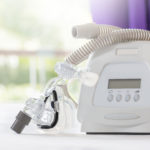A series of federal lawsuits were filed this week against a Dutch medical equipment company and its American subsidiaries claiming that they knew for a long time that their sleep apnea devices and ventilators were defective and dangerous before they were recalled.
The suits against Philips were filed by the Stamford, Ct., law firm of Silver Golub & Teitell.
The law firm said the suits were filed “in response to Philips’ recall of sleep apnea machines and mechanical ventilators due to the dangers posed by the sound abatement foam used in these devices.
“Philips states that the foam may increase users’ risk of developing cancer, pulmonary fibrosis and may cause other injuries, such as headaches, irritation, inflammation, respiratory issues and exposure to materials with toxic and carcinogenic effects.”
The suits claim that:
“Philips knew of the problems and risks associated with the sound abatement foam long before disclosing the problem,
“That Philips sold millions of devices after becoming aware of the dangers posed by the foam,
“and that Philips’ announced recall program provides no relief for users of the recalled devices.
“Philips’ actions, according to the complaints, constitute breaches of warranty as well as violations of state consumer protection statutes and other laws.
Philips’ Recall
The recall, said the company, was due to the risk that the sound abatement foam used to reduce noise in these devices may “off-gas certain chemicals” and “degrade into particles which may enter the device’s air pathway and be ingested or inhaled by the user.” The recall includes Philips’ flagship DreamStation devices.
According to Philips, exposure to the sound abatement foam found in these devices could cause individuals to experience headaches, irritation, inflammation, respiratory issues, hypersensitivity, nausea, vomiting and possible toxic and carcinogenic effects, i.e., cancer. Philips advised users of the Recalled Devices to immediately stop using the devices and seek alternative treatments.
The cases are Manna v. Koninklijke Philips N.V., et al., Case No. 21-cv-11017-DJC (D. Mass), Boudreau v. Philips North America, et al., Case No. 1:21-cv-11095-DJC (D. Mass), and Hufnus v. Koninklijke Philips N.V., et al., Case No. 21-cv-11130-DJC (D. Mass), which are pending in the United States District Court for the District of Massachusetts.
The law firm seeks to represent everyone who purchased these devices:
Philips E30 (Emergency Use Authorization)
Philips DreamStation ASV
Philips DreamStation ST, AVAPS
Philips SystemOne ASV4
Philips C Series ASV, S/T, AVAPS
Philips OmniLab Advanced Plus, In-Lab Titration Device
Philips SystemOne (Q Series)
Philips DreamStation, CPAP, Auto CPAP, BiPAP)
Philips DreamStation GO, CPAP, APAP
Philips Dorma 400, 500, CPAP
Philips REMStar SE Auto, CPAP
Philips Trilogy 100 Ventilator
Philips Trilogy 200 Ventilator
Philips Garbin Plus, Aeris, LifeVent Ventilator
Philips A-Series BiPAP Hybrid A30
Philips A-Series BiPAP V30 Auto Ventilator
Philips A-Series BiPAP A40
Philips A-Series BiPAP A30


